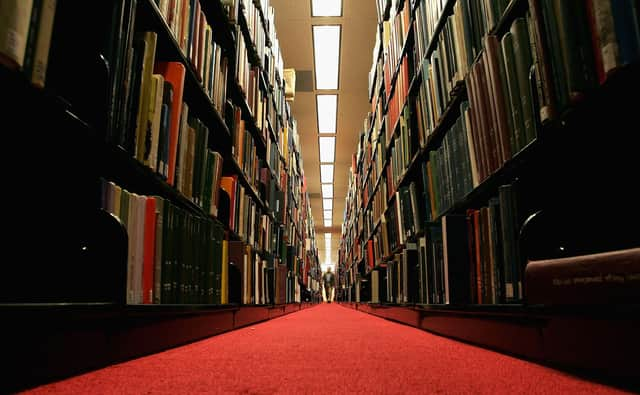Human libraries, where you can 'borrow a person', could help tackle prejudice and other preconceived ideas – Karyn McCluskey


This person gave their time to help me understand their culture, traditions, gendered roles, stereotypes and prejudice.
I wonder what you are thinking as you read these words. Have you already developed a mental image? Have words sprung unbidden into your brain?
Advertisement
Hide AdAdvertisement
Hide AdPossibly because of the media or some of the other inherited prejudice picked up from people around us. My conversation was like being taken around a foreign land by a guide – an unvarnished and sometimes painful conversation about the good and the not-so-good.
Recently, I spoke with colleagues about Denmark where there are libraries in which you can ‘borrow a person’ rather than a book, and listen to their life story for 30 minutes. The intent is to fight prejudice.
Each person has a label: Traveller, refugee, depressive, Muslim, ‘in recovery’ and so on, and the outcome is to try not to “judge the book by its cover”. It’s called “The Human Library”.
It’s not only prejudice that it can overcome. So many people live and die in a square mile. Lives constrained by countless factors: poverty, caring responsibilities, opportunity and so much more.
The chance to explore the rich picture of the human experience can be constrained, not only the chance to see the phenomenal beauty of this planet, but also the diversity of its people and cultures. We fear what we don’t know. Fear can become hate. And, hate can find a welcome home in ignorance.
Meeting indigenous and First Nations people in Australia and Canada left me surprised and in wonder at the ways of living. I had the opportunity to spend some time in Canada speaking to a group of people about prevention and partnership working.
I chatted to a nurse about the weather. It was minus 40C, a tad chilly to my reckoning! She explained that she lived above the tree line and wore extreme weather outerwear to keep her alive, as the wind chill meant it could feel like minus 60C.
She was part of the Cree First Nation people. She talked of medicine wheels and the forced removal of First Nations children who were placed in residential schools run by churches and government. Her conversations about the disproportionate numbers of First Nations people in the justice system, alcoholism and the disappearance of First Nations young women would make a whole column in itself. I felt like my horizons expanded through that small interaction and I left wanting to know more.
Advertisement
Hide AdAdvertisement
Hide AdI love the idea of a human library, to meet, be inspired and intrigued by other’s lives. To be free to ask questions. To perhaps explore our own bias and so experience cognitive dissonance, where taking on new information about someone or about a group of people causes us to feel shame, embarrassment or anxiety about how we have behaved or thought in the past.
Of course, people can double down and refuse to accept that things that they have long believed might not be true. Changing our belief systems is challenging, but it is the foundation of thriving in harmony in these extraordinary times.
Karyn McCluskey is chief executive of Community Justice Scotland
A message from the Editor:
Thank you for reading this article. We're more reliant on your support than ever as the shift in consumer habits brought about by coronavirus impacts our advertisers.
If you haven't already, please consider supporting our trusted, fact-checked journalism by taking out a digital subscription.
Comments
Want to join the conversation? Please or to comment on this article.
